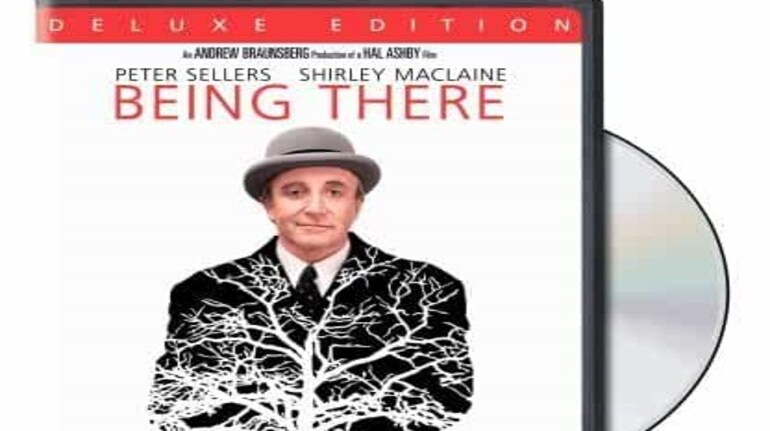The glee with which Kosinski skewers the pretensions of movers and shakers is infectious, and it is evident on almost every page of the book.
Watching leader after global leader making fatuous pronouncements about how to tackle the pandemic, I was reminded of Polish-American writer Jerzy Kosinski’s 1970 novel, Being There. This is a satire on the ways of politics, of business, and on all of us who are determined to scrape meaning from banality, if not incompetence.
Kosinski went on to co-write a screenplay based on the book, which was made into a well-received movie starring Peter Sellers. It turned out to be Sellers’s last role, one for which he received an Oscar nomination.
Being There deals with the actions and assertions of Chance, a simple-minded man approaching middle-age whose twin obsessions are gardening and watching TV shows. In a world where everything on the small screen is “tangled and mixed and yet smoothed out”, gardening is“the white cane of a blind man.”
Circumstances force Chance to step out of the walled-in mansion he has grown up in and into the world outside. A providential road accident leads to his being welcomed into the house of an influential financier and his wife, who take him to be a genteel and wealthy businessman.
Under these new circumstances, Chance starts to model his behaviour on the people he has watched on TV, while his language is drawn from homespun horticulture. Both these traits endear him to his new hosts, who are impressed by his quiet, courtly manner and his pronouncements, which they feel are deep and filled with meaning. “What an excellent metaphor!” his host exclaims when Chance says that he is only a gardener. “A productive businessman is indeed a labourer in his own vineyard!”
His circle widens dramatically when the US president drops in to meet the tycoon. Asked what he thinks about the state of the economy, Chance replies: “In a garden, growth has its season. There are spring and summer, but there are also fall and winter. And then spring and summer again. As long as the roots are not severed, all is well and all will be well.”
Yet again, this literal statement is taken as symbolic, and the president decides to quote it in a televised address. A befuddled Chance becomes the flavour of the season, with politicians and businessmen vying for his attention. One character is so impressed that she refers to him in private as “a cross between Ted Kennedy and Cary Grant… not one of those phony idealists, or IBM-ized technocrats.” The Soviet ambassador, too, is struck by what he feels is his down-to-earth philosophy.
Even when Chance drops the gardening references and replies directly and honestly, people read different messages into his declarations. At one point, he is offered a lucrative book deal. When he frankly reveals that he is unable to write, the publisher replies, “Of course—but who can, nowadays? It’s no problem. We can provide you with our best editors and research assistants.” Chance then confesses that he can’t read, and the publisher exclaims, “Of course not! Who has time? One glances at things, talks, listens, watches.”All these years later, that still strikes quite a contemporary note.
Poor Chance, oscillating between mimicking TV shows and speaking frankly about trees, flowers, grass, and seeds finds himself willy-nilly ascending to even higher echelons. Reflecting on his changed circumstances after appearing on a show as a celebrity pundit, he feels: “Television reflected only people’s surfaces; it also kept peeling their images from their bodies until they were sucked into the caverns of their viewers’ eyes, forever beyond retrieval, to disappear.”
He continues to communicate his love of gardening to those attracted by his demeanour, and acquires the reputation of a person with the ability to reduce complex matters to the simplest of human terms. In this way, he offers both confirmation and affirmation of others’ desires. They project onto him what they want to believe, and can use for their own ends.
The glee with which Kosinski skewers the pretensions of movers and shakers is infectious, and it is evident on almost every page of Being There. Shortly after publication, however, the book was involved in a controversy, with claims that it was plagiarised from Polish writer Tadeusz Dolega-Mostowicz’s novel, NikodemDyzma's Career.
In this latter work of fiction, a man from the provinces arrives in the capital in search of work and soon wins over many influential people with his folksy attitude and sayings. The resemblance does seem uncomfortably close.
The inspired touch, though, is the manner in which Kosinski allows Chance’s metaphors to be interpreted in a variety of ways. A typical example: “In a garden, things grow…but first, they must wither…if you love your garden, you don’t mind working in it, and waiting, then in the proper season you will surely see it flourish.”Any speaker could use that in any context and be thought of as sagacious. If they haven’t already done so, that is.
Sanjay Sipahimalani is a Mumbai-based writer and reviewer.Special Offer: Subscribe to Moneycontrol PRO’s annual plan for ₹1/- per day for the first year and claim exclusive benefits worth ₹20,000. Coupon code: PRO365














